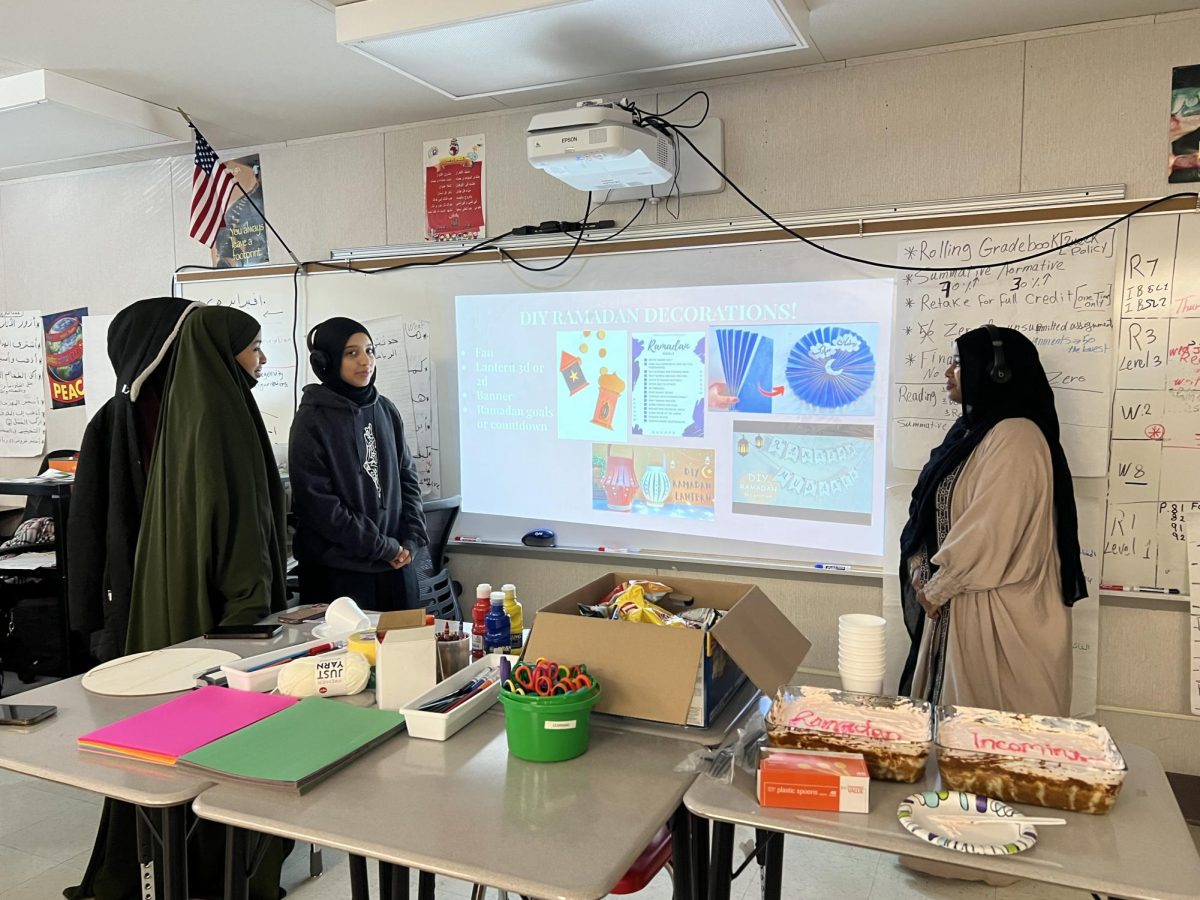Picture yourself in your teen years, like most of us, juggling friends, school, and life. Imagine now that these commonplace hardships have been displaced by airstrikes, the loss of loved ones, and a persistent anxiety of what lies ahead. This is not just a fantasy for many of our Sudanese classmates; for them and their families, it is a harsh reality.
“Everything in Sudan has been burned down or blown up or terrorized,” says Reema Mohammed, a sophmore. “There are no more airports, there are no more malls, there is basically nothing left–just bullet holes in houses and people starving.”
In Sudan, whole communities are being ripped apart by conflict, families are looking for refugee camps, and children are going to bed hungry. From malnutrition and inadequate medical treatment to relocation and insecurity, Sudan’s people have endured unimaginable suffering since a civil war broke out in Sudan in April 2023 between the National Army and a Renegade Paramilitary Force.
This situation is quite emotional for a lot of people in our community here at [Annandale High School], including students, friends, along with a few teachers. This is not just a headline, It’s a heartbreaking remembrance of home, of relatives, and of livelihoods stuck in limbo.
“Knowing that I have families struggling back home and knowing that I can’t do anything about it, truly breaks my heart,” says Mayar Hassan, a junior. “They could go days without eating or the only thing they would eat would be beans or lentils.”
While the availability of food may be taken for granted by many students here, every meal is a strain for families in Sudan. For far too many people, the current situation of food scarcity and ongoing hunger has grown to be a norm.
In addition to the violence, Sudan is experiencing extreme food insecurity, which has placed almost 20 million people—nearly half of the population—in desperate need of food supplies. Parents and their kids have little optimism for aid given the brutality that has hindered many humanitarian organizations from getting to the impacted areas.
Annandale is known for its diversity, with over 20+ cultures represented here, we have a huge number of Sudanese students, and almost all of them have a personal experience or a link to someone who has been impacted by the crisis. The current situation is part of these kids’ lives and personas.
Sitting down with one of our Annandale High School staff, Mrs. Ola Layaly, Arabic teacher, shares a story. “I’m from Egypt, but my best friend, who is from Sudan, told me: “My life is here, but I used to go back and visit Sudan every summer. Now I cannot do that,” explains Layaly. “It hurts imagining not being able to go back to your home country, it’s extremely sad.” she added.
Although it’s simple to feel cut off from a disaster that’s occurring halfway around the world, being aware of what’s going on in Sudan allows us to assist our friends and students who are experiencing this crisis on a profound level.
Many people in Annandale remember this narrative as one of home and memories that will never be the same. Sophomore Reema Mohammed, whose grandmother was fortunate enough to escape Sudan, explains groups of Militias worsen the humanitarian crisis. “Something that people don’t realize is that the Militia controls basically almost every single shop in town,” said Reema. “Each day food prices can increase and other days it can decrease. I know many families struggle with the prices, considering that they’re extremely overpriced and really expensive for just little things like bread.” she added.
Militia is an armed organization with a reputation for using violent methods, such as destroying towns, stealing from homes, and relocating Sudanese people. Their activities fuel the starvation and instability that people face in Sudan by depleting resources, disrupting aid, and terrorizing people.
Since the start of the crisis, more than 1.8 million people have been evacuated in Sudan, with numerous of them fleeing for safety in nearby nations like Egypt and Saudi Arabia. Families that are displaced lost not just their house but also the security, warmth, and sense of belonging it once offered.
“I wish more people here were aware of the ongoing crisis in Sudan,” shared Junior Mayar Hassan, a personal message with her peers. “Everyday people are dying from starvation and physical abuse, and women are being raped.”
Several students have friends and relatives who are suffering from unspeakable trauma, relocated, without food, as a result of the war. It serves as a reminder that no matter how detached from world issues our daily lives might seem; the suffering in Sudan presents an opportunity for us to move beyond our comfort zones and acknowledge the humanity that unites us all. Realizing our privilege, considering how we might be helpful for those affected, and creating a school community that uplifts those who are most vulnerable are crucial steps in recognizing what is happening in Sudan.
“I’m hoping that everything will be settled”, said Mrs. Ola Layaly. “Sudan is a beautiful country,” she added. Learning about the Sudan situation is a significant approach for reaching those who are affected by it on a daily basis in a school community that values empathy and consciousness.









